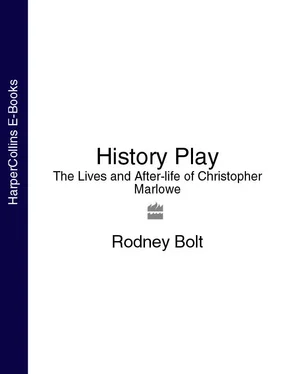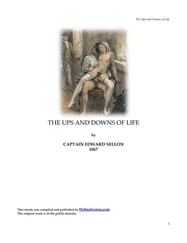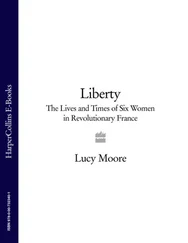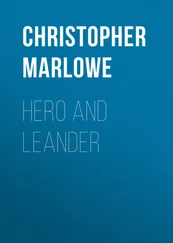Like Stephen Gosson, Christopher aimed at university, and on writing plays rather than acting in them. But in 1578, university was barely within his reach. At his new school he embarked upon more complex Latin grammar, later voyaging into Greek and the deeper waters of prose and poetry, before casting up on the rocks of rhetoric. Mere learning was not enough, ‘rhetoric’ helped translate language into persuasive action. He had to recognise rhetorical forms and devices used by the ancients, to master the skills of clear expression and to discriminate between good and bad style. He had also to learn how to make links between history and present behaviour. As Richard Grenewey, who translated Tacitus in the 1590s, put it: ‘History [is] the treasure of times past, as well as a guide an image of man’s present estate: a true and lively pattern of things to come, [and], as some term it, the workmistress of experience …’. So Christopher read the poets and the historians – the chaste bits at least – of Terence, Virgil, Ovid, Plautus and Horace; Sallust, Cicero, Caesar, Martial, Juvenal and Livy, and also such moderns as Erasmus and Baptista Mantua. In his final year he would have had to deliver several formal declamations.
Like Stephen before him he was a day boy, starting school at six in the morning with prayers and psalm-singing in the cathedral, before passing back under ‘the Dark Entry’, the low passage between the cloisters and the school, to his lessons (cf. ‘There’s a dark entry where they take it in …’, The Jew of Malta iii 4). Money was deducted from his scholarship allowance to pay for lunch at school: breast of mutton, according to one kitchen account, with peas and prunes; fish every Friday, and salt fish and herring during Lent. The cobbler’s boy from St George’s parish began to make friends above his station – like Samuel Kennet. Sam and Kit were new boys together and left school in the same year. Sam’s father had served in the royal households of both Henry VIII and the present queen, and his great-great-grandfather had been standard-bearer to Henry V at Agincourt. He had Kit enthralled with family stories of knights and the glory of England, and was even more awe-inspiring for his glittering treasure of first-hand tales of court life.
Now that he was rubbing doublets with the gentry, Kit had to brush up on his manners. The instructions to young Francis – the French boy he encountered in the language book he had used with Oliver’s father – would have helped: use a napkin, not your hand to wipe your mouth; don’t touch food that you are not going to eat yourself; don’t lean on the table (‘Did you learne to eat in a hogstie?’); clean your own knife and put it back in its sheath (forks were not yet widely used in England); don’t pick your teeth with your penknife (use a ‘tooth-picke of quill or wood’); and be sure not to get your sleeves in the fat.
And as Christopher had done with Stephen Gosson, so Oliver tagged along with Christopher at every free moment. Records are scanty, but documents in the Bernhardt Institute collection help build up a picture of the two boys at the time. An ‘apprisement of suche goodes as were Mr Oliver Laurens’s’ (dated 1609), made after his death, includes a list of books, some of which must date back to his boyhood.* ‘Nowels Catechismes one in Latin, one in Englishe’ and ‘ Luciana dialogi Latini et hist ’, which has an annotation in a different, unidentified hand, revealing that Oliver was taught Latin as a child by ‘the atheist Marloe’. If the Lucian indeed included The True History , then the boys at least had some fantasising fun during their after-hours lessons, as the book claims to describe a journey to the moon. Dr Rosine cites an account of Oliver taking Christopher to worship at a Huguenot chapel, and we find Christopher getting into trouble when he ‘solde his poyntes’ to a scrivener in exchange for teaching Oliver to write – ‘poyntes’ were tagged laces for tying doublet to hose. These were apparently special silver-tipped ones given to Christopher by Sir Roger Manwood. This account was in a copy of a deposition by the ever-litigious John Marlowe, though the case is surprisingly absent from Canterbury records.*
Christopher spent just two years at The King’s School. In 1580 – not quite in the footsteps of Stephen Gosson, who had gone to Oxford – he was promised a scholarship to Corpus Christi College, Cambridge. His voice as well as his learning had got him there. The scholarship, one in a long line established by Archbishop Parker, himself Master of Corpus Christi from 1544 to 1553, had been set out in the archbishop’s will and provided for a scholar of The King’s School who was Canterbury born and bred. It required that:
. . . schollers shal and must at the time of their election be so entered into the skill of song as that they shall at first sight solf [sing to the sol-fa syllables] and sing plaine song. And they shalbe of the best and aptest schollers well instructed in their grammer and if it may be such as can make a verse.
Young Christopher could do all that, and well. Even at the age of sixteen he could ‘make a verse’ better than the rest. With the scholarship, he had almost reached the peak of the first ‘high Pyramide’ he had set himself to scale, in a climb that had begun the day that Stephen Gosson had walked into John Marlowe’s shop to buy new shoes for school.
Stephen’s life, however, had suddenly and radically changed course. He had failed to take his degree, had hived off to London to write plays, and now, suddenly, in the year before Marlowe went up to Cambridge, had done a complete about-face and published the Schoole of Abuse , one of the most vituperative anti-theatre diatribes of the time, railing on (once he had finished with the evils of plays and players) against the decay of the English spirit. According to Gosson’s Alchemist pamphlet, Marlowe was deeply affected by the book, and had, by the time he went up to university, become a Puritan. His friendship with Sam Kennet, who was about to embark upon his career as ‘the most terrible Puritan’ in the Tower, would seem to bear this out. But even if this is so, it was not a state of grace that was to last very long. The prods and tugs of Kit’s new fortune would propel him in alarming new directions. The boy who had thought: ‘That like I best that flies beyond my reach’ was about to stretch himself further than he had ever done before. In 1580 – the year in which earthquakes shook England, setting church bells pealing unaided, and a blazing star appeared in Pisces – Kit Marlin (as he had started to style himself) sloughed off Canterbury and set out for Cambridge.
Конец ознакомительного фрагмента.
Текст предоставлен ООО «ЛитРес».
Прочитайте эту книгу целиком, купив полную легальную версию на ЛитРес.
Безопасно оплатить книгу можно банковской картой Visa, MasterCard, Maestro, со счета мобильного телефона, с платежного терминала, в салоне МТС или Связной, через PayPal, WebMoney, Яндекс.Деньги, QIWI Кошелек, бонусными картами или другим удобным Вам способом.












